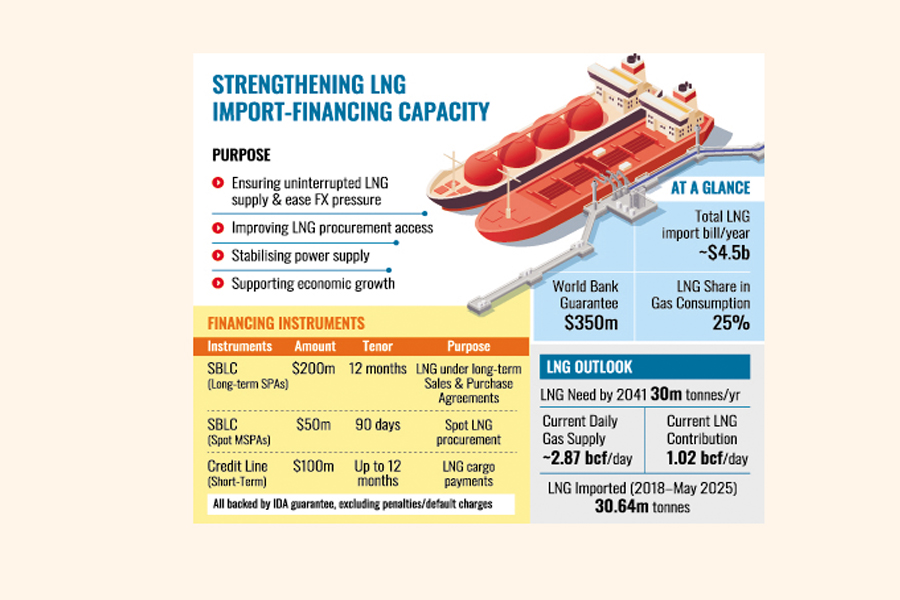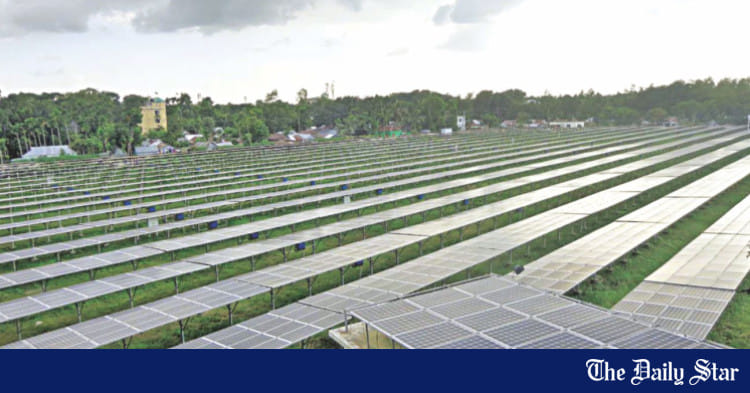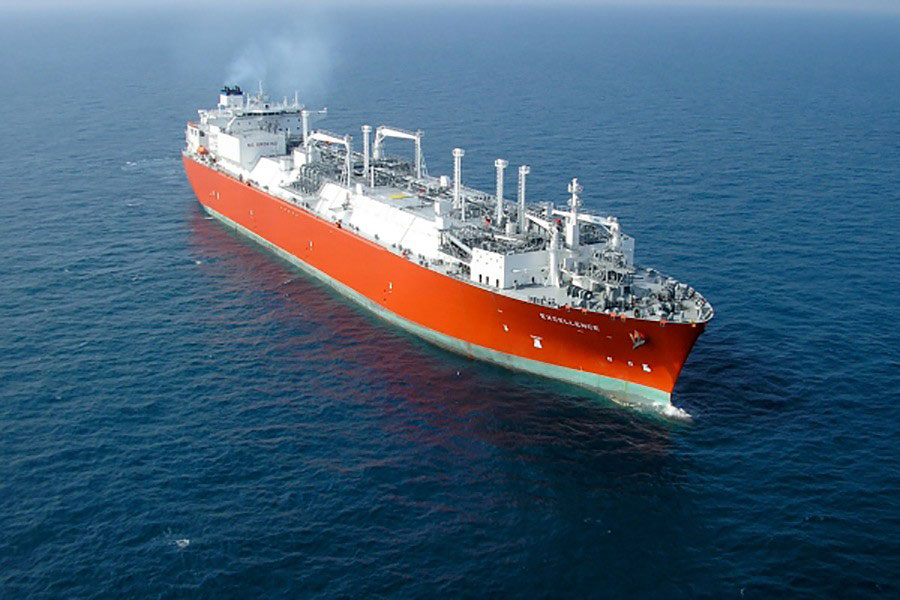- Copy to clipboard
- Thread starter
- #451
Saif
Senior Member
- Messages
- 14,376
- Reaction score
- 7,589
- Origin

- Residence

- Axis Group


Gas distributors doing ‘crafty’ business
Some public gas distributors continue to sell what they say more gas than they purchase and they boast officially the impossible feat as system gain, although the assertion is beyond logic and is often described in a bad light by energy experts.
 www.newagebd.net
www.newagebd.net
Gas distributors doing ‘crafty’ business
Some sell more gas than they buy while others sell far less than ideal
Emran Hossain 05 July, 2025, 00:30
Some public gas distributors continue to sell what they say more gas than they purchase and they boast officially the impossible feat as system gain, although the assertion is beyond logic and is often described in a bad light by energy experts.
Two of the six gas distribution companies in their attempts to justify system gains said that they, unlike their four other peers, were never involved in gas theft and that they had in place an airtight gas network management.
The explanation refers to the high system loss prevailing in four public gas distributors, some of whom often see their system loss reach double digit against the global standards of 2 per cent.
In February, the latest month for which official gas distribution data are available, Petrobangla put the average gas distribution system loss to be 6.68 per cent, marking a better performance by the distributors compared with their previous month’s record of 7.96 per cent.
Titas Gas Transmission and Distribution Company Ltd distributing half of all gas consumed, which is 2,600mmcfd on average, reported as high as 9.21 per cent of system loss in February, after its performance significantly improved compared with that in the month before, with a system loss of 10.53 per cent.
‘Of course, there are a lot of areas where our services can improve,’ Md Rezanur Rahman, chairman of Petrobangla, told New Age about the overall gas transmission and distribution performance.New Age merchandise
Bangladesh’s strange cases of system loss and system gain, energy experts said, are more of an indication of intentional manipulation of transmission and distribution systems than of technical problems.
In other words, they said, system loss and gain can be described as clear evidences of stealing of gas and inefficiency of government officials.
Comprised of a network of pipelines, a gas distribution system delivers natural gas received from the transmission system to end users such as residential, commercial and industrial customers. Distribution and transmission of gas is completely taken care of by publicly owned companies. Imported LNG is blended with local gas before they are supplied in the national grid.
Associated equipment that gas transmission and distribution companies use includes regulators, which controls pressure, and meters and valves, which is connected to gas flow control.
Distributors receive gas in high pressure from the transmission company, Gas Transmission Company Limited. The GTCL supplies gas in a pressure of 200 pounds per square inch (psi).
The sale of a gas distributor should ideally be slightly less than what it purchased thanks to losses from evaporation and leakage. Abnormal loss or gaining of gas during distribution is clear sign of fraudulence or illegal activities, energy experts said.
Shahjahan al Mamun, general manager (operation) at Pashchimanchal Gas Company Limited, admitted that by claiming system gain they categorically said they sold more gas than what they bought, but he failed to give any logical explanation of achieving such an impossible feat.Bangladesh-themed souvenirs
‘Unlike most other distributors, we don’t have gas theft and leaking pipelines,’ said Shailoja Nanda Basak, general manager (marketing) at PGCL, while sharing the cause of his company’s system gain.
Officials at the PGCL said that they gained gas as they reduced its pressure while distributing compared with pressure at which they received gas from the transmission company. Power plants receive the maximum pressure of 150psi while the industries and captive power plants receive gas with a pressure of 15psi.
The commercial and residential customers receive piped gas with a pressure of only 0.5psi. But often gas pressure drops to just zero at the consumer end.
Reduction in pressure allows gas to expand, the PGCL officials explained, increasing its volume, which is the only unit by which gas supply is measured for billing customers. The distributors never take into account factors such as temperature, pressure and molecular elements, which the transmission company measures before supplying gas to distributors.
In February, the PGCL reported a system gain of 1.40 per cent, which was more than one percentage points higher than the previous month.
Sundarban Gas Company Limited, on the other hand, reported 1.44 per cent of system gain in February.
When asked about how this happened, SGCL general manager (marketing) Md Zahir Uddin said that the matter was complex and could not be so simply understood.
SGCL managing director Gautom Chandra Kundu said that there could be metering error behind their success, but insisted that a deviation of 2 per cent in distribution account was globally acceptable.
Consumers alleged inaccurate metering and tampering of meters are rampant.
The SGCL and the PGCL are rather new with relatively modern system in operation. They also cover small areas and their residential users are small families unable to consume more gas than what they need, unlike what happens in mess in towns and cities like Dhaka.
Energy experts said that residential customers consuming more gas than what they paid for was an unrealistic proposition. Until some of the consumers switched to pre-paid meters, residential customers used to pay a set monthly bill for an assumed consumption of 77 and 72 cubic meters against double and single burners, respectively.
In June 2022, the BERC reduced the assumed consumption to 66 and 55 cubic meters, ruling that the customers’ actual use is 40 cubic meters and that they have all been overbilled by gas companies.
Commercial industrial and captive users often complain of receiving gas with one or two psi, far less than they are supposed to get.
Gas companies did not meter gas transmitted or distributed for decades, billing consumers for assumed consumption based on their annual expenses.
All gas companies kept reporting system gain even a decade back when system loss mostly did not exist.
Karnaphuli Gas Distribution Company Limited reported almost 8 per cent system gain in 2023-14 following years of presenting similar record.
Bakhrabad Gas Distribution Company Limited reported 2.10 per cent system gain in the same financial year while Jalalabad Gas Transmission and Distribution System Limited reported the only system loss of 0.51 per cent in the same year.
Titas Gas Transmission and Distribution Company Ltd, on the other hand, reported 1.32 per cent of system gain in the same financial year.
‘All these accounts of system loss or gain hold no water for there was no metering system until 2023,’ said Titas managing director Shahnewaz Parvez.
Earlier, the transmission company distributed its cost on distribution companies based on assumed consumption, never using meters to determine the amount of gas it was actually supplying.
A tension still persists between the transmission and distribution companies for the latter believe the former’s recently introduced metering system was not properly working.
Distributors also use meters that are not properly calibrated and vary in reading for they are bought from different manufacturers.
Gas meets over half of Bangladesh’s primary energy need. Bangladesh’s industry expanded mainly based on gas, which started flowing through pipes even before the country won its independence in 1971.





